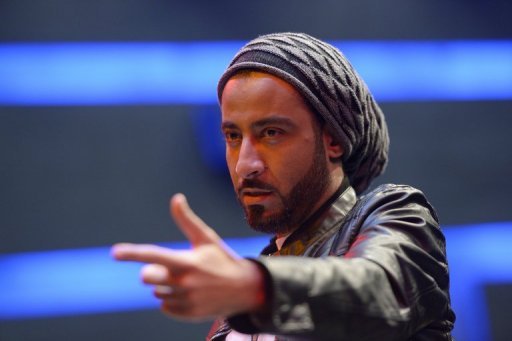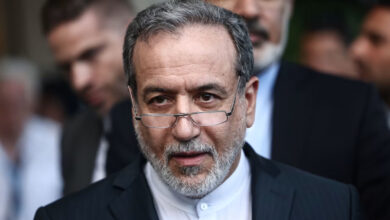
Making hip hop in Saudi Arabia is a bit of a tightrope act, says Qusai Kheder, self-styled ambassador for the genre who has built a niche following for his sex-and-violence free brand of rap music.
"Saudi Arabia is a very conservative country — that's where we are from," the 35-year-old told AFP before performing to a crowd of mostly Arab, largely female, young fans at the Arab World Institute in Paris this month.
"This is our culture, our heritage, and we have reasons to respect it," said the Riyadh-born young man in leather jacket, grey snood and clipped goatee, whose stage name is simply "Qusai."
"But at the same time, we don't have freedom of expression, freedom of speech, so we set up limitations in whatever we do — some people for the fear and some people for the respect.
"I do a little bit of both," he said with a laugh.
Qusai cut his teeth as a member of Saudi Arabia's tiny hip hop underground, becoming the first Saudi to make a rap recording in 1994, earning him the status of "outcast, a black sheep, till one day I felt like, they are out to get me."
So in 1996 he left to study in the United States, making a name as a DJ and radio personality.
Ten years on he returned to a changed Saudi Arabia, he says, where he now runs his own studio in Jeddah — though with music still viewed as a sin by the country's Islamic leaders, it is a "miracle" to be able to perform in public.
And when it comes to content, Qusai must tread a fine line.
"In Arabic the majority if not all the songs are talking about love — habibi this, habibi that," he said smiling. Whether in Jeddah or Chicago, hip-hop's subject matter is everyday life, he adds.
"You want to party with your friends, talk about it. You see some bad news on TV, you're going to express how you feel.
"Our number one subject, for all Arabic rappers is Salaam. Peace. Because it's a never-ending battle, and we are going to continue singing about peace until we at least smell it."
Peace is the theme of his new album, whose title "The Inevitable Change" is an explicit nod to the Arab Spring and its aftermath across the region.
One track called "Arab World Unite" warns that "most of our wounds are from friendly fire".
But this is no political manifesto: any allusions to demands for greater democracy are veiled, or generic, such as: "My Arabic people are waking up/Trying to see a better day so we can live it up."
"I am not a politician," Qusai told AFP. "I don't attack social issues, that's not my place. I drop subliminal messages for the smart people, whoever reads between the lines."
Signed in 2008 to Platinum records, part of the Saudi-owned, Dubai-based broadcaster MBC, Qusai shot to televised fame as co-host of the network's "Arabs Got Talent," the hugely successful Middle East spin-off of the global franchise.
He has no qualms about having joined the musical mainstream — and relishes the freedom it has given him.
"It's not an everyday thing in Saudi Arabia to find a hip hop artist becoming a public figure. The people that used to reject me, despise me, and hate me, I guess they love me right now!" he joked.
He says he used the television franchise — broadcast from Beirut to tens of millions across the Arab world — as a launch pad, both for hip hop and his own career.
"'Arabs Got Talent' was the breakthrough of my life," he said. "And it was a chance to introduce that hip hop culture — because it does exist in the Middle East, strongly, but underground."
Nominated for this week's MTV Europe awards in the best Middle Eastern Act category, Qusai switches seamlessly in his lyrics from English to Arabic, injecting riffs of traditional Arabian instruments.
"I would say it's safer in English," he says — allowing him to slip under the radar since the language is still not widely spoken on the Arab street.
Still, when it comes to romance, Qusai keeps things strictly above the belt.
"Sex is always going to be there — but if I touch on it, I touch on it in a nice, entertaining way, not degrading, not insulting, not X-rated.
"I respect my culture, I respect my women, period. I was raised in a household full of women so I don't look at them from that angle. It's just not me — and in my culture, this is not something I should focus on."




